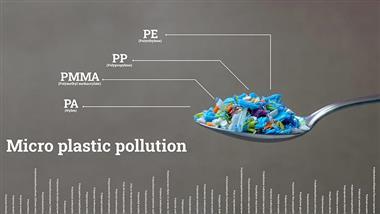by Dr. Joseph Mercola, Mercola:

STORY AT-A-GLANCE
- Discarded plastics make up 18.5% of landfills and 90% of all trash entering the world’s oceans. Estimates suggest that by 2050, our oceans will contain more plastic than fish by weight. In some ocean waters, plastic already exceeded plankton by a factor of 6-to-1 in 2006
- Recent animal research found plastic particles in mice’s brains just two hours after the animals ingested drinking water containing microplastics
TRUTH LIVES on at https://sgtreport.tv/
- Scientists suspect microplastic contamination in our brains may cause cognitive impairment, neurotoxicity and altered neurotransmitter levels, which can contribute to behavioral changes
- Similarly, a Chinese study published in January 2022 concluded that inhaled plastic was associated with “obvious neurotoxicity”
- The plastics industry sold consumers on the idea that plastic was recyclable and therefore sustainable even though they knew it was financially unfeasible. Consumers were also deceived by the addition of recycling codes on plastic products. The code makes it seem as though all plastic is recyclable, which isn’t true
We live in a throwaway society, and products intended for short-term consumption are packaged in materials that will survive for centuries. Discarded plastics make up 18.5% of landfills1 and 90% of all trash entering the world’s oceans.2
At the rate we’re going, estimates suggest that by 2050, our oceans will contain more plastic than fish by weight.3 In some ocean waters, plastic already exceeded plankton by a factor of 6-to-1 in 2006.4
The problem with plastic is that it doesn’t biodegrade; it photodegrades, which takes hundreds of years. Researchers estimate a single plastic coffee pod may take up to 500 years, the duration of the Roman Empire.5 Even as it breaks down, it doesn’t completely vanish. Instead, it turns into tiny plastic particles, commonly referred to as “nurdles,” which act like sponges for toxic chemicals.6
These particles are routinely consumed by filter feeders in the ocean, slowly poisoning them and causing blockages. As these filter feeders are consumed by larger creatures, the toxins move up the food chain, ultimately ending up in our own bodies. Plastic chemicals also enter our bodies through other routes, including drinking water.
Plastic in Water Can Enter Your Brain
As reported by The Guardian May 1, 2023:7
“Researchers at the University of Vienna have discovered8,9 particles of plastic in mice’s brains just two hours after the mice ingested drinking water containing plastic. Once in the brain, ‘Plastic particles could increase the risk of inflammation, neurological disorders or even neurodegenerative diseases such as Alzheimer’s or Parkinson’s,’ Lukas Kenner, one of the researchers, said in a statement …
[The] researchers also believe that microplastic contamination in our brains can cause short-term health effects such as cognitive impairment, neurotoxicity and altered neurotransmitter levels, which can contribute to behavioral changes. The team gave mice water laced with particles of polystyrene — a type of plastic that’s common in food packaging such as yogurt cups and Styrofoam takeout containers.
Using computer models to track the dispersion of the plastics, researchers found that nanoplastic particles — which are under 0.001 millimeters and invisible to the naked eye — were able to travel into the mice’s brains via a previously unknown biological ‘transport mechanism.’
Essentially, these tiny plastics are absorbed into cholesterol molecules on the brain membrane surface. Thus stowed away in their little lipid packages, they cross the blood-brain-barrier — a wall of blood vessels and tissue that functions to protect the brain from toxins and other harmful substances.”
You Breathe and Eat Plastic Too
Other studies have demonstrated that inhaled plastic can enter your brain as well. For example, a Chinese study10 published in January 2022 concluded that inhaled plastic was associated with “obvious neurotoxicity.”
More specifically, the plastic nanoparticles reduced function of brain enzymes known to malfunction in Parkinson’s and Alzheimer’s patients. As such, inhaled plastic may contribute to or exacerbate these conditions.
Your health, including the function of your brain, is also largely dependent on your gut health and the function of your mitochondria, and plastic wreaks havoc there as well.
A January 2023 study11 from Finland found that high doses of microsized polyethylene decreased cell viability and increased production of harmful reactive oxygen species (ROS) in the mitochondria, which is where most of your body’s energy is produced.




